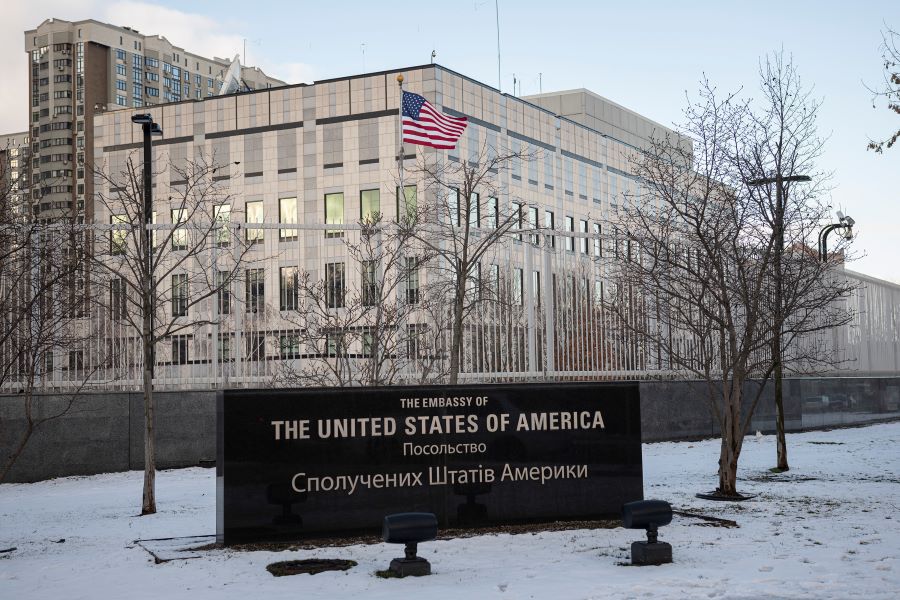
by Katharine Lake Berz | 31 Oct 2022 | Conflict, Government, World
Before Russia invaded Ukraine, Canadian diplomats fled Kyiv, leaving Ukrainian staff behind and raising questions about their role in war. The U.S. embassy in Kyiv, Ukraine, 12 February 2022. The United States, like Canada and some other nations, ordered the...
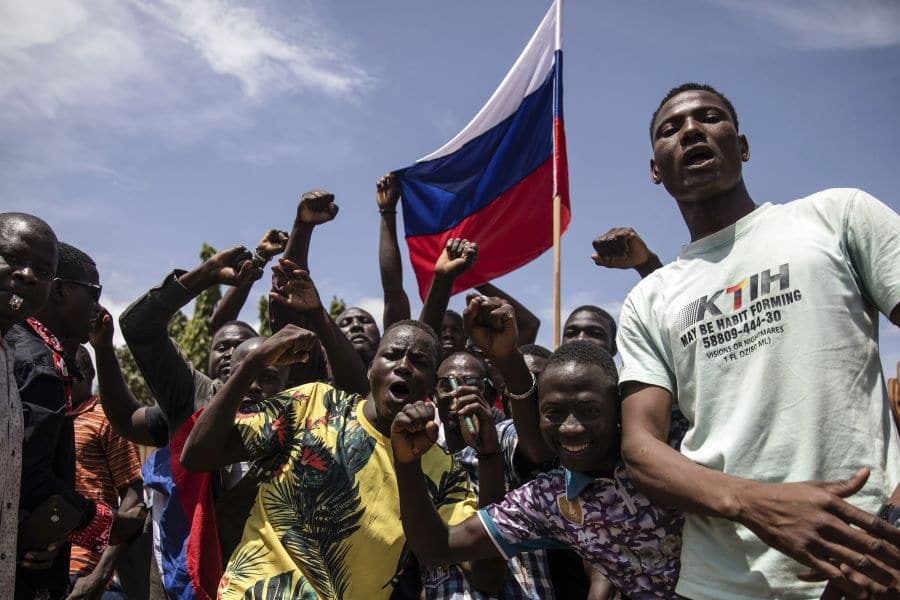
by Jessica Moody | 27 Oct 2022 | Africa, Conflict, Future of Democracy
Soldiers have seized power in Burkina Faso and Mali, setting back democracy as jihadists threaten security in West Africa. Young men carrying a Russian flag chant slogans against France in Ouagadougou, Burkina Faso, 30 September 2022. (AP Photo/Sophie Garcia) Waking...
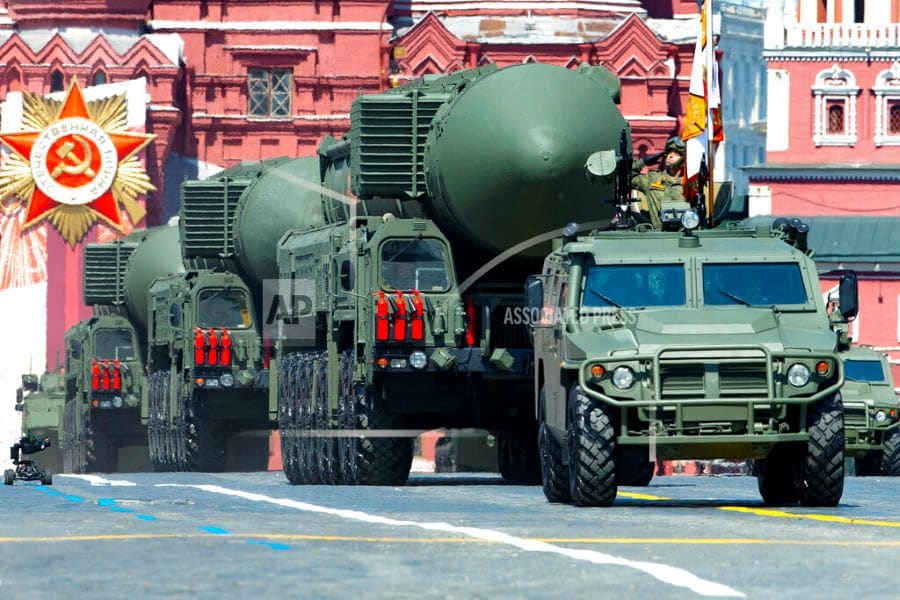
by Daniel Warner | 13 Oct 2022 | Conflict, Russia, Ukraine, World
Russia’s president has raised the prospect of using nuclear weapons in Ukraine. That’s a frightful notion. But it might not violate international law. Russian RS-24 Yars ballistic missiles in Red Square during the Victory Day military parade in Moscow,...
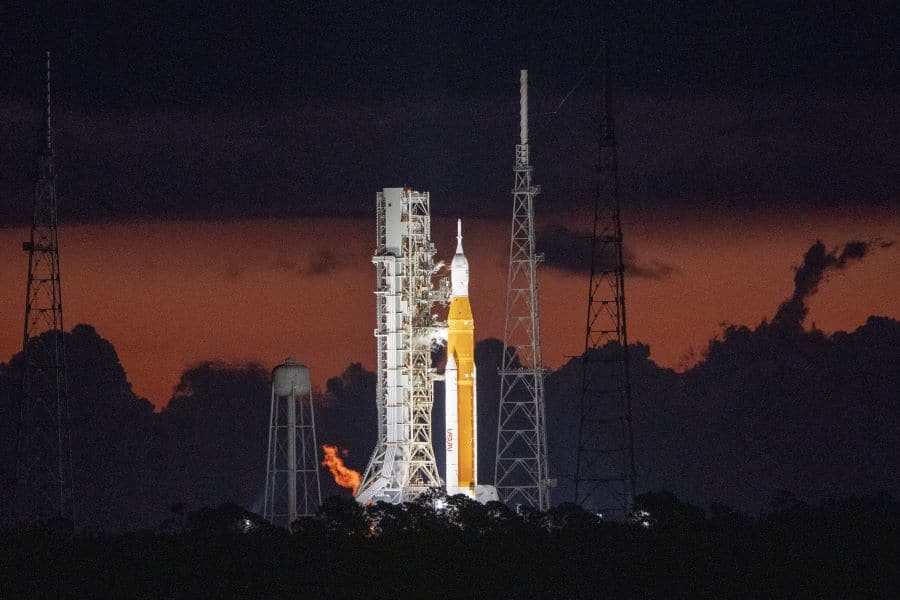
by Natasha Comeau | 9 Sep 2022 | Decoders, Educators' Catalog, Space, Technology
It’s been 50 years since humans walked on the Moon. Now, the U.S. is launching a costly program to return there and possibly pave the way to Mars. NASA’s Space Launch System rocket with the Orion spacecraft aboard at NASA’s Kennedy Space Center in Florida,...
Five decades after humans walked on the Moon, the U.S. space agency NASA is leading an international endeavor to return there at a cost of $93 billion. Correspondent Natasha Comeau decodes the Artemis project, a series of missions to build a long-term human presence on the Moon. The 21 nations that have signed the Artemis Accords for space exploration reflect today’s political divisions. Missing from the collaboration are China and Russia, which plan to build a lunar station of their own. It was competition with the then Soviet Union in the 1960s that spurred the first space race and resulted in the historic 1969 moon landing. Now, a host of private corporations are funding their own space initiatives.
Exercise: In teams, have students form their own private space exploration company. Were they able to successfully build their own rocket that could take people into space, what would be their mission? What would they hope to get out of their space exploration ventures? Have each team come up with three things they think space missions could accomplish.
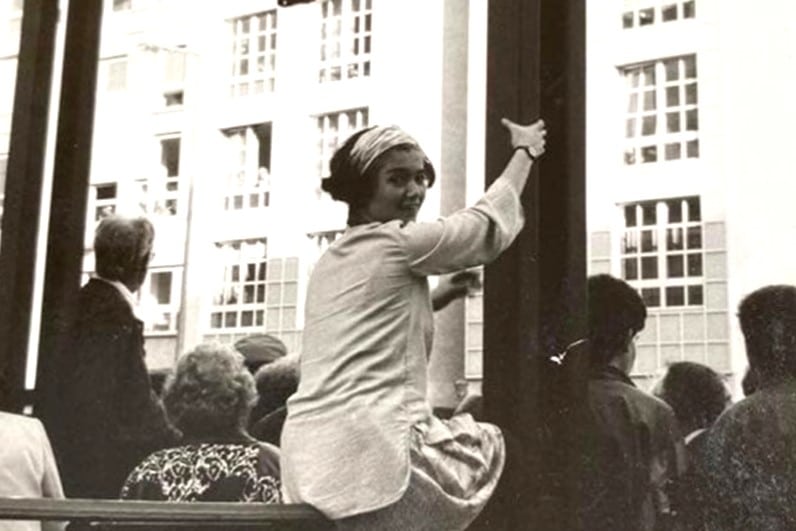
by Elaine Monaghan | 6 Sep 2022 | Educators' Catalog, Europe, Eyewitness, Future of Democracy, Personal Reflections
I was in Berlin in 1989 when the Wall came down. I wish I had thanked Mikhail Gorbachev for changing my life and letting me witness history. The author perched on a Berlin underground station entrance in the fall of 1989 (Photo courtesy of Elaine Monaghan) In June...
In 1989, Elaine Monaghan found herself in Germany. She would spend two decades covering international affairs for the Reuters news service, but the night she witnessed the fall of the Berlin Wall changed her life. Reflecting on that event, she marks the death of Mikhail Gorbachev, then leader of the Soviet Union, whose decisions contributed to the end of the Cold War and the disintegration of the USSR. Monaghan tells us that “even if you don’t always grasp everything that is happening around you, if you follow an unmarked, difficult path, opting not to resist the pull of history, walls can come tumbling down.” She offers youth an important reminder that, with strife all around us, they can still make a difference.
Exercise: The Berlin Wall was a concrete barrier that separated East and West Berlin, dividing two countries – the Federal Republic of Germany and the German Democratic Republic. Can your students think of a wall today, either physical or geographic, that acts as a political divide? What might bring that wall down?





